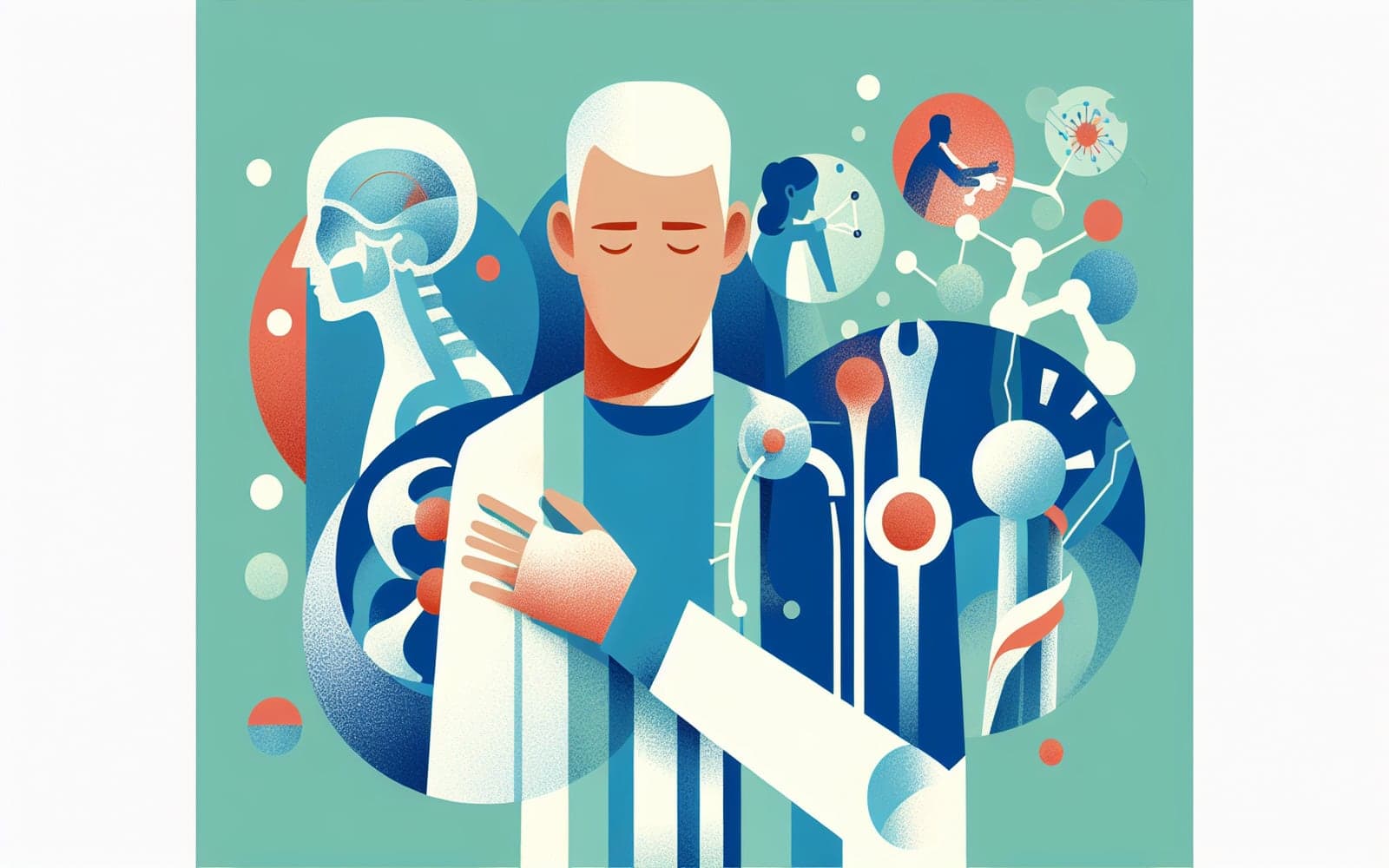What's Causing Your Shoulder Pain? Understanding Acromioclavicular Joint Disorders
Published: Nov 01, 2023
Shoulder pain can be tricky, especially when it stems from the acromioclavicular (AC) joint. This article helps you understand the various conditions affecting the AC joint, so you can recognize symptoms and seek proper care.
Contents
Understanding the AC Joint
The AC joint connects the collarbone to the shoulder blade and is supported by ligaments and muscles. Over time, this joint naturally wears down, often without causing pain. However, when it does become painful, it's usually due to conditions like arthritis or injuries.
Common AC Joint Disorders
AC joint disorders can result from acute injuries, such as falls, or chronic issues like arthritis. Symptoms often include shoulder pain and tenderness at the top of the shoulder. Repetitive stress and overuse can also lead to these disorders.

Diagnosing AC Joint Problems
Diagnosing AC joint issues involves a thorough physical exam, and sometimes imaging like X-rays or MRIs. Special tests, such as the cross body adduction test, help pinpoint the problem. In some cases, a local anesthetic injection can confirm the diagnosis.
Frequently Asked Questions
It's where the collarbone meets the shoulder blade.
Injuries, arthritis, and repetitive stress can cause pain.
Through physical exams and imaging tests.
Some mild cases improve with rest and care.
Key Takeaways
Identifying AC joint problems early can prevent long-term complications.
Get started on understanding your shoulder pain by discussing it with Doctronic.Related Articles
References
Renfree KJ, Wright TW. Anatomy and biomechanics of the acromioclavicular and sternoclavicular joints. Clin Sports Med 2003; 22:219.
Montellese P, Dancy T. The acromioclavicular joint. Prim Care 2004; 31:857.
Always discuss health information with your healthcare provider.

